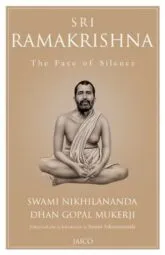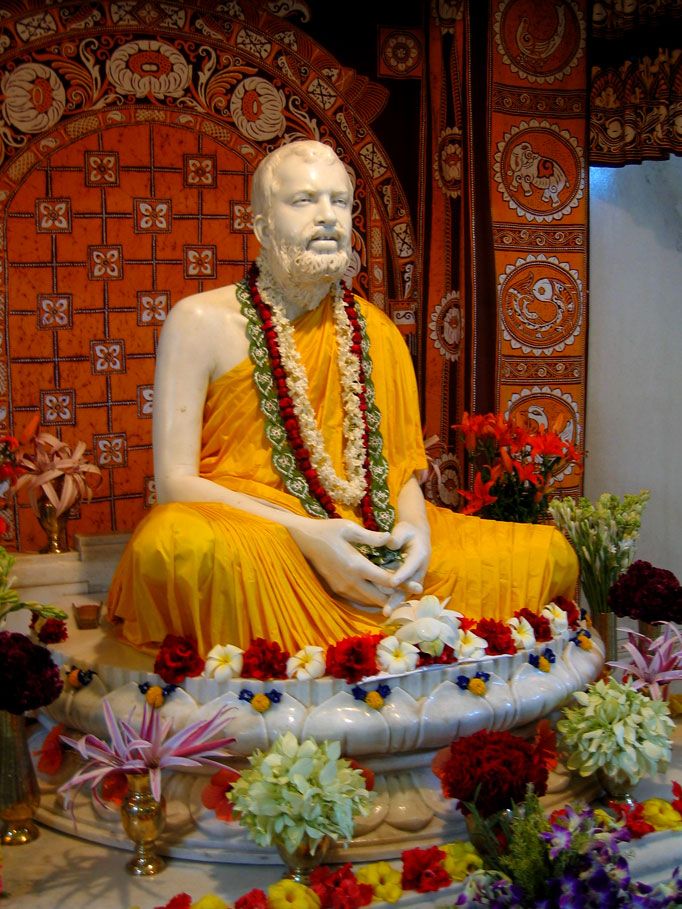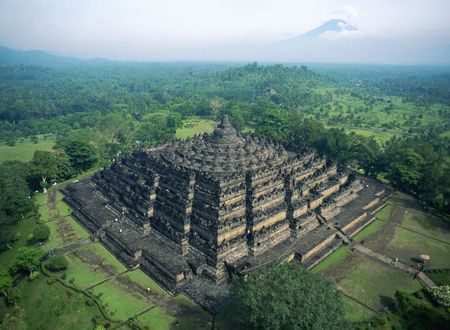Swamiji, in his post, ‘Expansion of consciousness – The vedic way’ published on 18.12.21 describes the consciousness of one’s mind when one becomes an adept in Sadhana. A detailed description of expansion of conciousness or the ascent of kundalini through the seven stages/chakras is explained by Sri Ramakrishna to his disciples.
When I downloaded kindle app in my phone 4 to 5 yrs ago for for the first time. I searched for books on Sri Ramakrishna. I came across the book, ‘The face of Silence’ by ‘Swami Nikhilananda’ and ‘Dhan Gopal Mukerji’ published by Jaico books. One is a disciple of Sri Ramakrishna order and the other is an agnostic, U.S.A settled Indian who got curious and enigmatized about Ramakrishna and the order at his times, when the order was taking shape across India and strong, young, intelligent and charismatic lads were taking sanyasa in large numbers. Why I am mentioning it here, is that what is written below is not mentioned in any of the Ramakrishna-Vivekananda publication (Maybe I didn’t come across any other book in which it is mentioned).
Before publishing this post, I wrote a mail to Jaico publishing for posting the following excerpt six months ago. As there was no response till date, last week, I contacted os.me admin team as to whether any excerpt from a book can be posted for the benefit of the readers. They said as long as the source, author and the publication are mentioned, it can be done. The book was first published in 1920’s and went out of print for a few decades. A new edition was released in 2011. The book is available in kindle, paperback as well as hardcover in Amazon.
Here it is,

“Description of the Indescribable:
What did Ramakrishna mean by “seeing God”? What does samadhi mean? What are the stages of development through which one attains the state of samadhi? During my course of gathering the Ramakrishna legends, it became more and more necessary to learn of the nature of the spiritual experience that held his disciples to his side. Why is it that such strong healthy young persons never wearied of him? What made them stay near him with so much devotion? What wonders did he show them? How came they to be blind to the attractions of this world? Did Ramakrishna offer them a greater and deeper attraction? All those questions I put before Swami Turiyananda in Benares. He said in answer, Ramakrishna showed us the face of the Eternal. After that we stayed on with him hoping that through his compassion and by training, we would see him again. Once a disciple, always a disciple. Think of the possibility of being thrown into samadhi—a thing for which men and women toil a hundred incarnations—by one single touch of his finger or foot! How could we leave his side, we who were so greedy like all youth to taste bliss Absolute again and again. He enabled us to stare into the eyes of God at least once; that naturally blinded us to this world. We see nothing here, and whatever we do see is filled with the brimming light of Tat [That]. No matter what we see or feel, it says, “You are he. You are he—Tat Tvam asi.”That is what Ramakrishna did to us. After such an event we were tethered to him as the bird is to the sky—it may go very far in many directions, yet it will remain under the many-branched sky.
It is a well-known fact that his chelas often pressed Ramakrishna to describe the indescribable. But he maintained, “God-consciousness cannot be explained through words. Only experience, not phrases, can reveal to you the full magnitude of the Invisible.”But, in spite of that, the devoted group of disciples urged him to speak particularly of his own experience of samadhi, oneness with the Absolute, Brahman. Ramakrishna asked to be excused. “I cannot see why I should explain it to you whom I have trained and helped to attain that experience. If it can be put into words why do you not do it?”he said. “But, my Lord,”the disciples said, “we cannot live in it as long as you can. You who have stayed in samadhi six, seven days at a time are the one to explain it. In the presence of Silence, how dare we speak?”But Ramakrishna only smiled at their barefaced compliment. Then a very keen-witted young man tried another way of making him speak. “But, my Lord, how do we know that every one of us attains the same experience, when our paths are different. For instance, when I meditate and quicken all my being with the thought of oneness, my spiritual energy does not act the same way as that of another.”“Ah, that is a comparison of the way men’s intuition acts,”replied the Master. “That is easy to describe. Here,”meaning himself, “I experimented on all the ways in order to verify them. But no matter how my spiritual energy acted, at the end it rose to the seventh valley and there I beheld …”That instant Ramakrishna passed into samadhi. His breathing stopped. His heart ceased working. His pulse beat no more. Were it not for the even temperature of his body, there would be no way of distinguishing him from a corpse. Of course there was nothing alarming about it; his apostles had seen him in that state very often, for days at a time.
At last, when he came out of samadhi, he resumed his discourse: “Oh, my sons, I try to explain it to you. But the experience is so great, words cannot render it. You must plunge yourself into the waters of that experience. For there is no other way of fathoming it. Your mind and intellect, swift though they are, cannot overtake the lightning-steed of God-consciousness. Those two only raise the dust of words in which they get lost.”“But, my Lord, you said that the ways in which the soul-sight [dharma-eye] rises in a man you can explain.”“Yes,”agreed Ramakrishna. He continued, Though what the dharma-eye sees is indescribable, the paths it travels are within the reach of words. And though the end is the same, the ways of reaching it are diverse. The rishis [sages] of old have enumerated at least five different ways that the soul-energy of men rises to God when they kindle themselves with prayers and meditation. For instance, sometimes a man’s soul-power moves, as the rishis say, like the hop, hop, hop of a toad. Sometimes it runs as a snake glides up a hillside, in flashes and curves. Then, there is still another way. Each cell of your body and every pulse of your heart beat slowly: the regularity of the rhythm with which your intuitions catch fire is slow and inevitable as the march of a row of ants from one food center to another. The fourth way is the way of a bird or birds. You know how birds fly off one tree and move through the air as though they were wandering aimlessly. Yet they alight on a distant tree that has been in their mind all the while. Similarly, your soul-energy rises and alights on the Divine when thoroughly quickened by persistent devotion. Each atom of your being seems to fly up on the wings of all-piercing light. It may wander about aimlessly at first. But if you keep on meditating and praying, those wings will bring you to the house of oneness. The fifth way is quite different from the others. The sages have called it the way of monkeys. You can sometimes see monkeys sitting still, like so many rocks. Then, suddenly, they start leaping and bounding, and they do not stop until they have reached their destination—somebody’s mango garden. So acts your spiritual sight. You sit still and meditate day after day, yet nothing happens. But you keep on thinking of oneness with your body, heart, mind, and soul. Let not even a particle of you flag. Concentrate hard until, in the course of two or three years, suddenly your insight leaps from plane to plane, scaling the steepest precipices with the ease of a hawk, then plunges into advaita—oneness with infinite intelligence. Now Ramakrishna closed his eyes and sat still. Slowly he passed into samadhi.
Again his listeners had to wait a long time. It may sound incredible, but the patience with which they waited on their Master surpasses all measurement. On this occasion, nearly an hour passed before Ramakrishna came out of samadhi and resumed his discourse. “In addition to the different ways a soul climbs to oneness, you must watch for the planes of consciousness that you must traverse. No matter whose meditation—whether of Lord Buddha or of a common man—it must take him across six different valleys, or planes of consciousness, in order to reach the seventh and last. Whether your soul’s intuition hops like a toad or flies like a bird, it must behold the seven valleys.”“Is the experience of each one of those valleys the same, no matter how a soul reaches it?”asked one of the disciples. “Yes,”answered the Master. “It is identically the same.”The same disciple questioned him further: “And did you commence your meditation the same way every time? Was your method at all different from what we do?”Ramakrishna replied, There is no difference at all between them. I sat still, as my guru advised me, and purified my thoughts and feelings of all the dross of separation. In my mind, in my heart, in my soul, in every cell of my body I sought his presence. I knew that I was not separate from him. He was in me. Hence, I quickened every bit of myself to elicit the hidden Self. “Come forth, O thou sword of immortality, from this thy scabbard.”
Thus I prayed for days, weeks, and months. At last my insight hopped—hop, hop, hop—it leaped over the embankment of this world and into the waters of the first of the seven valleys. A light utterly unknown, like another sun, shone upon what I perceived. All the things of this earth that I looked upon wore the vesture of Beauty. Everywhere I glanced, beyond and around, beauty and spirituality leaped out of matter like tigers from dark dens. Now I was aware that this was the home of the senses. The sight of so much wonder filled me with terrible appetites. “Possess, possess,”they cried. I was seized with an overpowering desire to taste and own all the beauty that lay about me. Just at that moment another cry broke out in me: “Beware, beware of the sinister temptation of this valley!”No sooner heard than done. I set out to quicken my meditation. I meditated harder and prayed more intensely for release from the first valley. At the end of some months my prayers were answered. The world of the senses tempted me no more: slowly the first valley fell from my consciousness as the skeleton of its prey falls from the eagle’s talons.
Now that Ramakrishna had taken the best out of it, he left the first valley behind. I had entered the second valley. Here I was not obsessed with the clawing material beauty of what I saw. The light in which the world appeared now was more refined, more subtle, and soothing. I felt happy here. Fragments of beautiful colors, shapes, and sounds haunted and sweetened my hours in this valley. I thought of relaxing my meditation and staying here. Just then I was tempted to create life: “things of sex.”For in the sublime light of the second valley, sex wears the appearance of beatitude and power. But no matter how it appears, the soul must resist its temptation. I set out to free my consciousness from the besetting beauty of sex. I heaped more fuel of devotion on the altar of God-quest. The fire of illumination burned very low at first, but gradually became brighter. And in a few more days, lo, it burned like daggers of light. And in those biting flames the second valley burned into cinders. Neither it nor its temptations fretted me further.
Thus I reached the third stage. In this valley I found that the sense of power that I had experienced before, in the second, had increased a hundredfold. Now I felt that I could take the sun between the palms of my hands and crush it into a handful of burning dust. This sense of power must be resisted. It is nothing but a test of character. There is no temptation viler than the sense of power. The instant I had perceived the danger that beset me, I quickened my meditation to the utmost. It had to be more powerful than the power that I had to resist. I prayed—oh! how I prayed—to be free of my sense of power. Like the fangs of a viper it held me. But my soul would not yield to it. I rose on the wings of meditation higher and higher till height had no meaning for me.
At that moment the serpent opened its mouth and fell from my side! Now, like an elephant hurtling through a fence, I plunged into the valley of hridaya jyoti, the light of God’s heart.As if my heart had become a torch lit by the flame from his, light fell from my soul over everything. Pebbles and stars—all sang with equal radiance a song of the ineffable. In this fourth valley I felt well-nigh secure from every temptation. Yet I kept a strict watch on myself. Though I was a chalice of light, yet I felt suspicious of temptation. That feeling served as a warning. I decided not to tarry here. Thus followed another long period of fasting, prayer, and meditation. Fortunately this time I did not have to wait so very long. The light in my heart expanded. It flung a vast circle like a net of suns around and beyond.
And lo, I had reached the next valley, the realm of utterance. My thoughts and feelings, every pulse and each cell of me was illumined! Through my throat and lips poured words of wonder and benediction. I praised the Lord all the time. Save, of him I could not bear to speak. And if anyone spoke of possessions and pleasures, their words smote me like rods. It got to be so that if any of my relatives came to consult me on family matters I would run away and hide myself in the woods of Panchavati. Relations or friends who sought to own me appeared to me as a deep well dragging me down—I feared to be suffocated in the water below in the dark earth. I felt as though I were drowning in their presence. Only by leaving them could I find peace. In other words, this valley is not full of tolerance and love for all. One must transcend it. That is why I flung myself into deeper and steeper meditations yet. There was no peace or pleasure for me. “Either find him face to face or take my life,”I counseled myself. As a tiger crouches in order to leap, so did I. I prayed; I waited; I watched. I would not linger in the valley of utterance; I must not give in to merely praising God. I must see him. So I sat couchant with prayers. Suddenly I perceived something ahead.
That instant, I leaped—in a trice I was in the sixth, the valley of Turiya. Here I was close to my beloved. I could see and feel him in the next chamber. Only a thin, transparent veil separated the soul from the self. At last I knew that I was in a room in the house of oneness.
From the sixth valley it is not difficult to pass on to the seventh. There, no word can enter, nor the chatter of human thought. Only your soul, clad in silence, can lift the veil that separates him from your embrace. A long silence fell after Ramakrishna had finished speaking. But instead of meditating the rest of the day on what the Master had said, one of the young men questioned him, “People say that you are ignorant, my Lord, yet how do you know all that the sages of the past wrote? For what you have told us lies buried in tomes of metaphysics. I am told you are an ignorant man.”Ramakrishna answered in a way quite different from his usual answer, “I never studied profound books, but I have heard scholars discuss them. Having heard—and gathering what rang true for my own needs—I made a garland of them and put them around my neck. Then I flung every inch of it at the feet of God saying, ‘Mother, take all your erudite tomes and laws. All I want is love of thee!’”
Just at that moment someone raised a very significant question: “My Lord, all that you have told us is pleasing to the soul and satisfying to the heart. But my wayward mind wishes to know this: he who starts his meditation with desire of oneness has to do so by saying, feeling, and realizing—‘I am he. I am he!’But what about those who start the opposite way, saying, ‘thou art not me, yet I seek thee!’What happens to them, my Lord? Do they too cross those valleys and become one with him, or do they remain separate from him forever?”Ramakrishna answered without any pause or hesitation: “That is about ultimate matters. But there is no difference whether you call him ‘thou’or call him ‘I am he.’Men that realize him through ‘thou’have a very lovely relation with him. It is very much like that of an old trusted servant with his master. As they both grow old, the master leans and depends on his friend the servant more and more. Toward the end of his life, the master consults his pearl of a servant regarding every serious matter that he wishes to undertake. One day, deeply pleased with his servitor’s devotion, the master takes him by the hand and seats him on his own august seat. The servant is embarrassed, and in his excitement says, ‘What are you doing, my Lord?’But the master holds him on the throne next to himself saying, ‘You are the same as I, my beloved.’So, though we worship God as one apart, yet if we worship him with sincerity and consecration, he will someday very suddenly make us one with himself. That is samadhi.”There is a legend that at one time some friends of Ramakrishna urged him to explain samadhi. They said, “If you say something about it you prove everything. Give us a definition of samadhi, and that will give us a definition of God.”But the wary Holy One replied, “And if I give you a definition of God, what will you do with it? Oh, I know what you will eventually do; you will make a creed of it in order to found a new religion in my name. I did not come to earth to start another cult. Oh, no!”However, it is reported that on another occasion Ramakrishna incidentally defined God. Some visitors asked him, “Will you please resolve what seems to us a contradiction? People say that you have attained identity: you are he. Yet you go about giving all the credit to the Divine Mother. You never say ‘I’; you speak of God, Mother, she, thou. If you are ‘I am he,’why do you call God ‘thou?’”The Master answered, “That is the ultimate matter of conduct. I have seen him and embraced him. I was infinite existence, absolute intelligence, and bliss. But I could not stay in that unconditioned state and yet be here in the conditioned. There, there is no limit: each and all are one infinite existence, unconditioned, indescribable. You cannot use words about it. Anything you say becomes finite. Naturally, you say ‘thou, she, Mother.’Take the seven scales of music: Suppose you go on mounting—do, re, mi—till you reach the highest note; what will you do next? You will come to do. Each man, after he has reached silence, the highest pitch, utters do the moment he opens his mouth. And do is God.”









Comments & Discussion
13 COMMENTS
Please login to read members' comments and participate in the discussion.